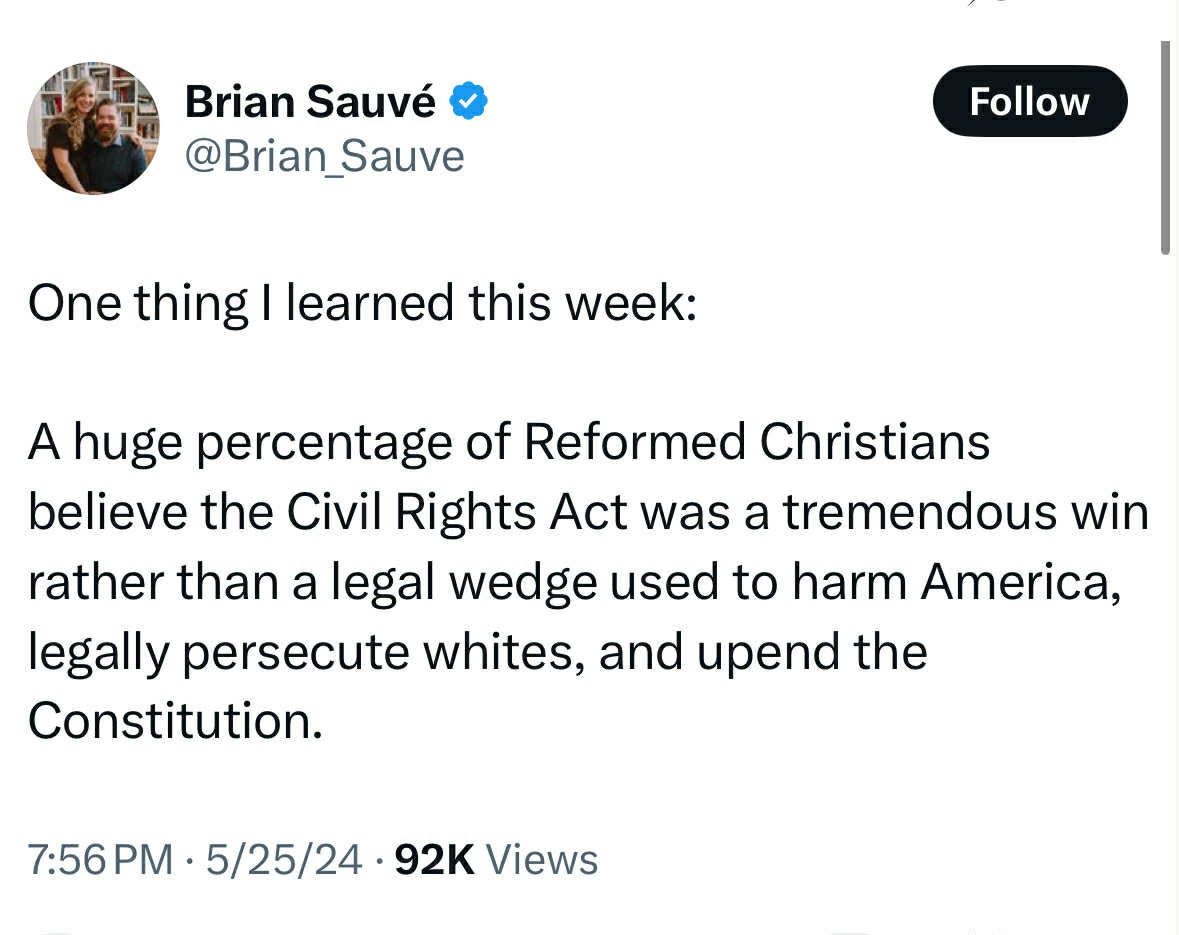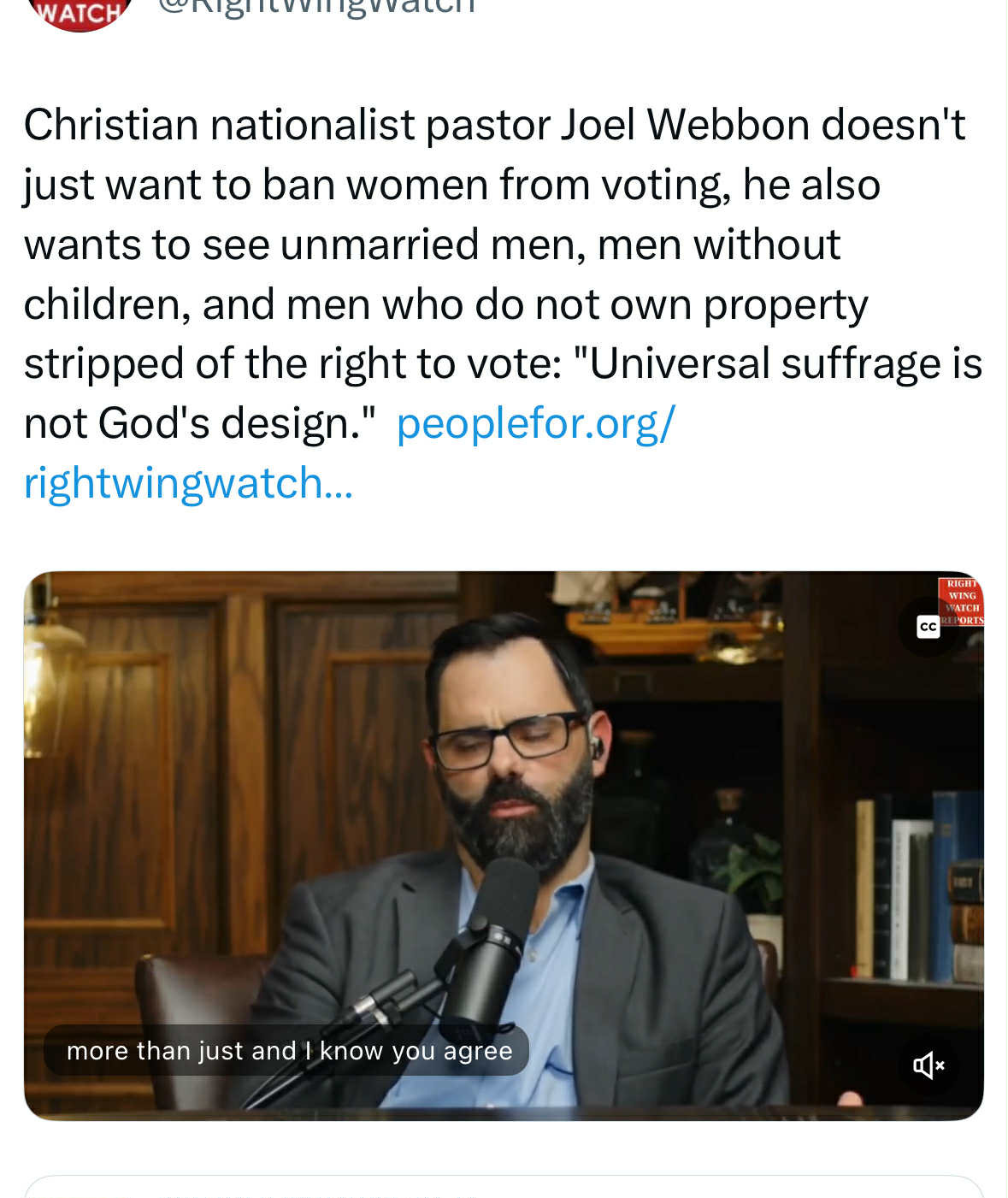Remember a few years ago when the world lost its ever-loving mind because a black woman was cast to play Ariel in the Disney live action remake of “The Little Mermaid?”
“Beware the woke agenda!” they cried. “White people are being replaced!”
I won’t lie; I did a lot of eye rolling during that news cycle and prayed for it to pass quickly.
The only legitimate criticism of “The Little Mermaid” as far as I’m concerned is the fact that the storyline encourages kids to believe their feelings matter more than material reality, that their parents are ignorant squares for trying to protect them from their own delusion, and that true happiness lies on the other side of mutilating healthy body functions in an attempt to magically become something they are not at the expense of everyone around them.
The moral of the story is “My feelings matter more than anything else in life.”
All these people whining about the “historical inaccuracy” of a black girl playing Ariel need to remember that 1. She’s a mythical fish creature. 2. There are black people in Denmark.
If you really want to talk accuracy, we should probably talk about the fact that the original little mermaid plunges herself onto a knife and dissolves into sea foam, distraught by the consequences of being such a self-indulgent, disobedient fool. It seems like maybe kids today might benefit a bit more from the original message. Then maybe we could stop reading about litter boxes in school restrooms or tampon dispensers in the men’s room.
I digress. The news cycle shifted, but the underlying public concern did not. It was freshly resurrected this week when HBO revealed the cast list for its new Harry Potter TV series and announced that Paapa Essiedu, a black man, will be playing the role of Severus Snape.
Many pearls were clutched.
Check out some of the responses.
There’s plenty more where that came from, unfortunately. This conversation does not bring out the best of humanity.
Like Ariel, Snape is an entirely fictional character, whose personality characteristics are way more important to the narrative than a skin color could ever be. From a storyline perspective, it may actually benefit the character to give him black skin. Snape is known as “the half blood prince,” as his mother was a witch and his father was a muggle (possessing magical powers.) He’s used to being spurned by the elitist pureblood snobs for not achieving their superficial standards of purity. Hmmm….
The integrity of the storytelling is not affected by casting a black man to play Snape. This is not some culturally insensitive assault on reason such as, let’s say, casting John Wayne to play Genghis Khan or putting Mickey Rooney in yellowface to create a shockingly racist stereotype of Asian people in “Breakfast at Tiffany’s.” Snape isn’t anchored to his skin color the way an accurate portrayal of someone like Harriet Tubman would need to be.
And while I’ve seen some valid concern that the choice may insert a racist plotline where one did not exist before, the overwhelming theme of most of the resistance I’ve encountered is the deeply held belief that there’s an insidious agenda to replace white people.
It’s endlessly fascinating to me how quickly people can change their tunes when it comes to matters of race. Initiate a conversation about racial reconciliation or the generational effects of the injustice of redlining, and you’ll instantly be accused of “race baiting” by people who swear up and down that they’re colorblind and that everything would be hunky dory if we could just stop talking about race altogether.
But cast a black man in an historically white role, and all of a sudden this alleged colorblindness dissipates. Not only is racism alive and well, but white people themselves are the primary victims of it! The horror! There’s a war on white people, don’t you know?
And okay, I get it. Here’s where I insert my obligatory disclaimer about how BLM as an organization is a Marxist dumpster fire that’s exacerbated the very problems it purports to solve. And here’s where I acknowledge that some of these groups have gone way too far when it comes to inserting actual anti-white animus into academia via CRT initiatives that actually teach kids to be ashamed of their skin color, etc. When a righteous desire for justice is replaced by an unhealthy desire for retribution, no one wins. It’s hard to thread that needle perfectly or to know exactly what justice looks like in the context of the sins we did not ourselves commit.
And I do think there’s ample room for discussion about a desire to preserve a sense of cultural identity (Britain is feeling the weight of this given the heavy influx of extreme Islam in their immigrant population). But this discussion ought to primarily focus on ideology, not skin color. I acknowledge that it’s frustrating to try to start these conversations only to be immediately labeled a racist the minute you say something rational like, “Yeah, I’m not really keen on normalizing the overt misogyny of sharia law in my city.”
If you accuse good people of being the bad guys long enough, eventually they’re going to feel victimized, and they’re going to stop listening and start building up their defenses, and some of that is what’s going on here.
But it’s also true that for people who have always held all the power, being required to share it can feel like oppression. And I think this principle is also in play here, and we have to be willing to ask difficult questions through a lens of humility and openness if we are ultimately going to arrive at a healthy destination.
In the context of casting, are white people really being replaced, or are they just being expected to share the opportunities they’ve been hoarding for themselves since film began?
It’s the same concept with women in business. Are women really taking over all men’s jobs, or are men just now expected to share the opportunities? Are these “DEI” hires that unfairly exclude more deserving candidates? Or are people just being intentional about expanding the pool to include those who deserve a chance at shining, too? It was fully 1974 before American fashion magazines finally decided a black woman could be on the cover of Vogue Magazine. Before that, the gold standard for beauty was always “white.” This isn’t without consequence. There’s an emotional toll to pay when representation doesn’t exist in desirable places in society.
And while I personally lean toward meritocracy in hiring, with positions and roles going exclusively to the most qualified candidates, you’ve got to admit that, at least from an historic perspective, it was pretty convenient to declare your commitment to hiring “the most qualified” candidate when you were actively refusing to admit women and minorities into the very institutions where the qualifications were earned. No one could penetrate the glass ceiling of the good ol’ white boys’ clubs without a pretty marked degree of intentionality.
Are all civil rights laws evidence of “a Marxist agenda?” If you listened to a few of the loudest mouthed Christian nationalists working overtime to wage war on those laws, you’d certainly believe so.
All I can say is yikes.
I’m not delusional enough to think this essay is going to lead us to a concrete solution about any of this. More than anything, I’m hopeful it will launch a meaningful conversation where people are willing to examine our own blind spots and consider other perspectives.
These discussions always have been, and likely always will be, pretty fraught. The price of reconciliation is tension and discomfort and wrestling in grey areas and the courage to risk conflict.
The price of reconciliation is humility.
In that vein, I welcome your respectful thoughts. What do you think about all this?








My only concern about the casting is that they may be afraid to have Snape be enough of an asshole to be true to the books. If they tone him down enough to not risk being called racist, he won't be Snape. Here's hoping they're braver than I fear.
Very fresh! I feel like you’ve given voice to a messy mess of some frustrating truths as far as how to navigate the ever more polarizing social waters. And in the case of Snape, I think you’re 100% right that his character is the most important thing. I feel like sometimes the black washing can take on political overtones, but I could totally see it not being that in this case. I just hope they don’t import the LGBTQxyz agenda into Hogwarts… which might be too much to hope for.